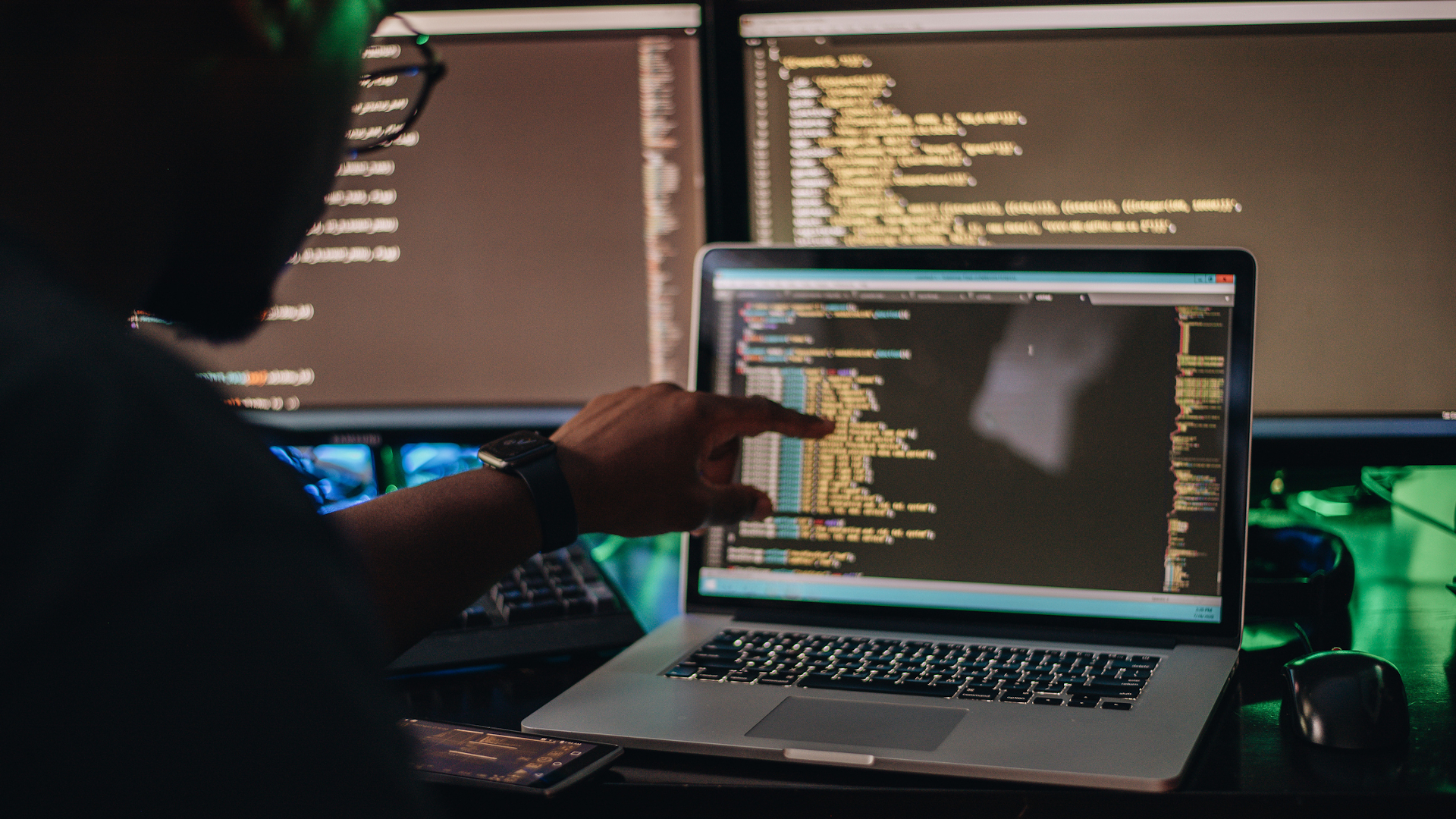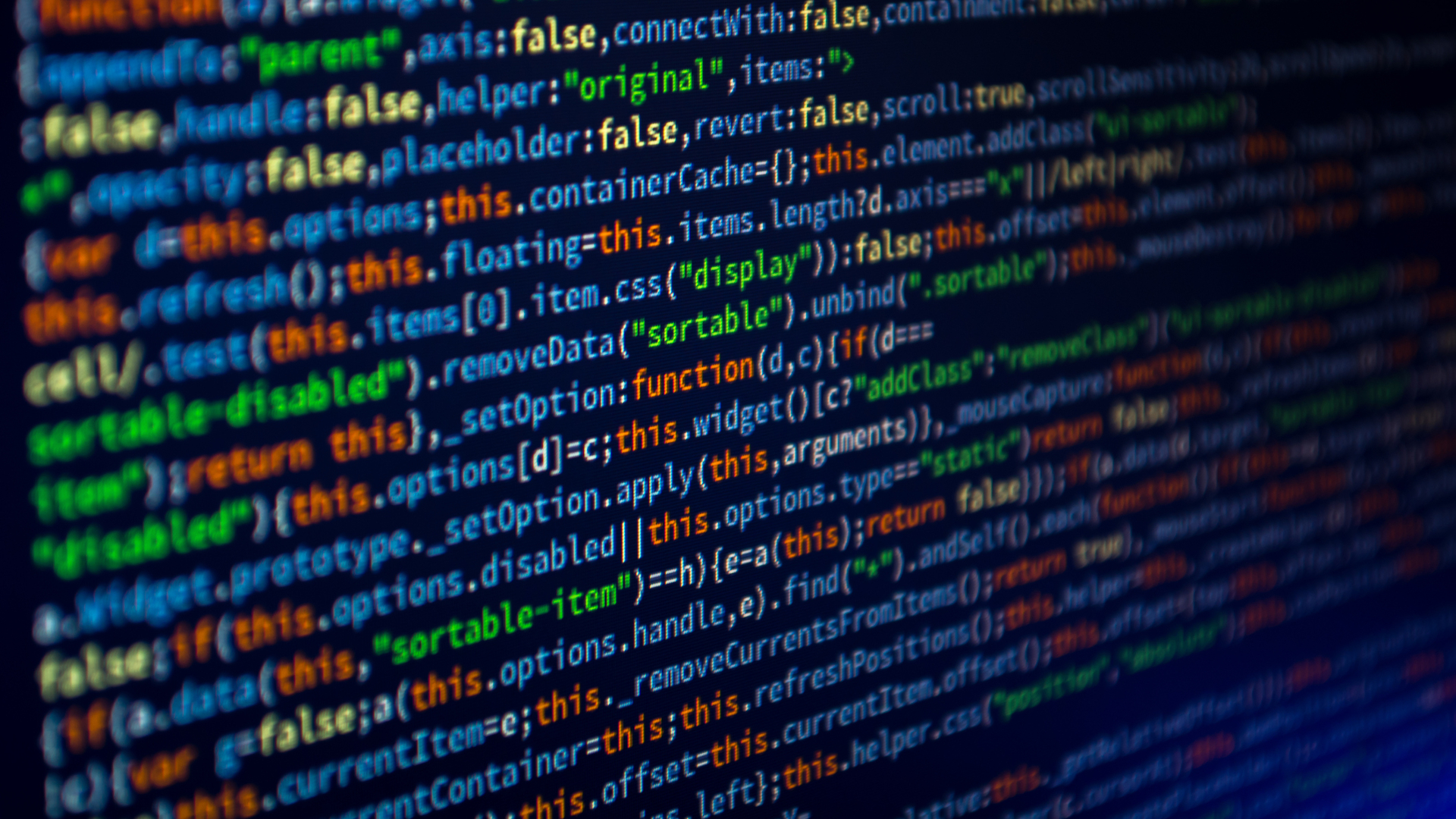Coding vs programming: What is the difference?
We break down coding vs programming by explaining what these terms mean and their key differences.

Get the world’s most fascinating discoveries delivered straight to your inbox.
You are now subscribed
Your newsletter sign-up was successful
Want to add more newsletters?

Delivered Daily
Daily Newsletter
Sign up for the latest discoveries, groundbreaking research and fascinating breakthroughs that impact you and the wider world direct to your inbox.

Once a week
Life's Little Mysteries
Feed your curiosity with an exclusive mystery every week, solved with science and delivered direct to your inbox before it's seen anywhere else.

Once a week
How It Works
Sign up to our free science & technology newsletter for your weekly fix of fascinating articles, quick quizzes, amazing images, and more

Delivered daily
Space.com Newsletter
Breaking space news, the latest updates on rocket launches, skywatching events and more!

Once a month
Watch This Space
Sign up to our monthly entertainment newsletter to keep up with all our coverage of the latest sci-fi and space movies, tv shows, games and books.

Once a week
Night Sky This Week
Discover this week's must-see night sky events, moon phases, and stunning astrophotos. Sign up for our skywatching newsletter and explore the universe with us!
Join the club
Get full access to premium articles, exclusive features and a growing list of member rewards.
In the 21st century, “learn to code” has become a mantra of sorts for a certain kind of person. And yes, for many people, coding is a great first or even second career choice after attending universities, coding bootcamps, or one of the best online coding courses. But the related terms you see online are confusing. What is coding compared with programming or even terms like software engineering?
The differences are big, and the terms are often muddled together. One reason is a funny combination of audiences that talk about coding: on the one hand, people who are lifelong coders who know their terms inside and out without explanation; and on the other hand, people who don’t yet know the difference and are just doing their best.
So let’s clear that difference up. In the sections that follow, you’ll learn what coding is, what programming is, and the difference between coding and programming. We've also put together guides on how to learn to code, along with our top picks for the best laptops for coding too, if you do decide to pick it up as a hobby or career.
To put it simply, if you were a writer, coding would be the mechanics of spelling words, choosing the right vocabulary, and making readable sentences. Programming, and the related field of software engineering, is how you make sure your sentences work together, the final essay makes sense, you’ve turned it in on time, and the person who assigned it will be happy with the outcome.
If that sounds like a big job, it really is! Especially at small studios where individual people sometimes do all of those tasks. But knowing the difference between coding vs programming can help you navigate learning to code as well as building the skills to take on more responsibility.
If your kids have started showing an interest in computers and you'd like to give them a gateway to the world of coding and programming, then check out our guide to the best coding toys for kids.
What is the difference between coding and programming?

The terms coding and programming are often used interchangeably by people who don’t know any better, because sometimes their tasks can look and seem similar. But the differences are stark and easy to summarize. Coding refers to the task of writing code, or specifically defined technical language, in order for the code to be understood by the computer or system. Coders are given parameters and they spend their time typing up the right information.
Get the world’s most fascinating discoveries delivered straight to your inbox.
On the other hand, programming is a larger category of work that includes coding as one part. Programmers are tasked with producing, well, programs. Their work can include integrating different parts of a larger piece of software, understanding and managing a team’s plan for a project, supervising testing and feedback before the software is released, and much more. A coder may simply turn in a document that includes their piece of code, while a programmer may be the one to slot that piece of code into place in a much larger document.
What is coding?

Coding is the term we use to cover writing in language that is specially designed for computer hardware. Over decades of computer design and use, many kinds of code have emerged as the go-between from humans to their computers. The same way people speak in English, Spanish, Mandarin, and so forth, computer systems also use many different languages.
Code is usually written in short sections that go line by line, so the results usually look more like poetry at a glance than like written paragraphs. Part of that is to make it easier to look up specific lines when there are problems with the code. Each line tells the computer something to do, like to save a variable or to display text. Coders also don’t always have to work on programs at all. People who work on websites, for example, might only ever do what’s called markup, meaning they write code that changes how things look or how information flows onto web pages.
What is programming?

Programming is the umbrella term for a large discipline that covers a variety of jobs. A program is a complete, usually well organized assembly of code, art assets, sounds, and more that work together for a specific purpose. Programmers often start before the workaday coders, because they may help to design what the program will actually do by making flow diagrams and outlines. They may also estimate costs for a project based on how much coding will be required. These higher level organizational tasks are known as software engineering.
Programmers may also help after the program is finished and installed by doing maintenance. In a small organization like an independent game studio, the same person may be both coder and programmer, responsible for writing all the nitty gritty of the code itself as well as helping to budget, designing the scope of the program, and testing and maintaining the codebase later on. Many professional coders do plenty of programming work on their own projects and in their jobs. Some coders are programmers, and some programmers are software engineers. Depending on the place and the project, any of these people may end up writing code at times.
Which is easier to learn: coding, or programming?

Coding and programming may be different, but coding is where both groups get their start. That means learning to code usually must come first. Some coders are self taught, meaning they learn over time by working on their own, looking things up, checking out examples of working code as inspiration, and more.
There are also coding classes both online and in universities, where students are likely to learn more about the structures of coding languages as well as some of the more abstract, high-level ideas about coding and computing. Plenty of people learn good coding techniques in any of these ways, it just depends what kind of learner you are.
There are also languages that are easier to learn than others. Some coders work in assembly, which is one of the lowest level languages with the most abstract notation. That language is designed to communicate almost directly with the computer hardware. Compare that to Python or even Java, which are higher level languages designed for people to make programs that run on the screen just like your web browser or word processor.
It can be easier to learn higher level languages because their results are so easy to see and their language is usually more natural. Now, there are also visual languages, like Scratch, which teach coding concepts by using shapes that fit together. These can help beginners understand structure and move on to professional coding languages.
Caroline Delbert is a writer, avid reader, and a contributing editor at Popular Mechanics in the areas of hard science and mathematics. Her other work has appeared in Scientific American, Unwinnable, Nerd Much? and more. She also makes small narrative games in Twine and Ink. Her interests include the history of coding languages, network hardware, cryptography, and the best way to name your variables.
 Live Science Plus
Live Science Plus










